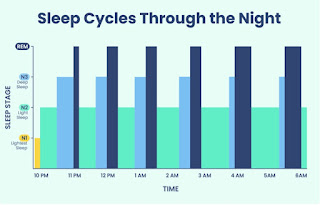Dear Students, Faculty, Residents, Staff, Alumni, Board Members and Friends,
Good morning on another spring-like day in our region! It’s been a busy week on campus, hosting consultants who are helping us prepare for an upcoming Council on Academic Accreditation in Audiology and Speech-Language Pathology of the American Speech-Language-Hearing Association accreditation visit next month. Special thanks to Bob Serianni and his staff for their wonderful preparation for this visit. We were also delighted to welcome Don Mueller, CEO of St. Christopher’s Hospital for Children; and our third year PCO students completed final preparations for Part 1 of their national boards.
In addition to all of this, here are some other things I hope you find of interest:
BOT RETIREMENT: Keith Ignotz has been a member of the Salus Board of Trustees for 32 years. In that time, he has seen PCO develop new programs and establish Salus University, an institution with multiple colleges and programs, continued growth and financial stability. Now Keith, along with Jo Surpin and Derrick Artis, OD ‘89, MBA, have retired from the board. Read more about Keith’s tenure here, and look for a future story about the contributions of Jo and Derrick.
WHERE ARE THEY NOW: Alyson McFadden, MSOT ‘22, was a competitive swimmer as an undergraduate student at California University of Pennsylvania who experienced a significant shoulder injury. The mother of a teammate was an occupational therapist who worked with McFadden and helped her to the point where she was able to continue to swim for the duration of her college career. That was the impetus that inspired McFadden to pursue a career in Occupational Therapy (OT) at Salus University. Click here to read more.
FASHION FRIDAY, AUDIOLOGY: A dog, hearing aid, drag queen, love sign, and CrossFit. Although topics seemingly unrelated, these items make up Rebecca Blaha’s, AuD, interest and personality. These items are incorporated into her attire as pins on her Salus University lanyard, which she wears daily while providing patient care at the Pennsylvania Ear Institute (PEI). Click here to read more about the latest installment of Fashion Friday, Audiology faculty edition.
FINAL THOUGHTS: This week, Salus University Vice President of Human Resources Maura Keenan and Human Resources Coordinator Kathleen McMullen kicked off another round of small group sessions to help faculty and staff review Drexel’s benefit options ahead of selection later this semester. Additional sessions are forthcoming, and you can also reach out directly to Maura and Kathleen to meet one-on-one if you have specific questions.
Feedback from our first two sessions suggests that many are finding the review process very helpful. And it is prompting additional questions, which is understandable. For many, this is the first time our transition to Drexel is “hitting home,” as we consider firsthand what choices to make among Drexel’s benefits. Each of us is “wired” a bit differently, and we each address change differently as well.
I’ve been discussing our transition with a friend who recommended I read a book by Thomas Erikson on the DiSC behavioral model. The book describes four types of human behaviors—dominance, influence, steadiness and compliance, broken down by colors – red, yellow, green and blue. It details how they interact with each other, as well as their communication and coping traits. The author points out that, “communication happens on the listener’s terms.” People hear what they want to or expect to hear, no matter who or what is being said, because the message is ”filtered through whatever their frame of reference might be.”
As we discuss our upcoming merger with Drexel, I see various DiSC profiles among the range of perspectives we are encountering. Some of us are wired for change – and embrace it – while others, primarily tend to prefer the status quo. One is not better than the other, but it does present some challenges when communicating change.
While, instinctively, we might all be aware of this, it’s a nice reminder that we are all a little different and will respond to change differently. That’s okay as long as we respectfully recognize those differences, and work to try and understand each other’s points of view. That said, change is coming and it’s exciting. To those in our group who may be having a difficult time with the change, we will do everything we can to make the transition to Drexel as seamless and comfortable as possible, understanding that some might have to adapt more than others.
Next week, several of our senior staff, deans and program directors will participate in a DiSC leadership training to learn how different behavior profiles navigate change, as we work to support our collective transition to Drexel. If you have taken a DiSC assessment, what have you learned about how you approach change? I would love to hear from you.
As you prepare for this weekend, please try to get out and enjoy the nice weather. Next week, although it may be a bit cooler than this week was, we’ll celebrate Spring, and prepare for our Spring Break, right around the corner. If you are so inclined, try to learn a bit more about DiSC analysis – I found it very enlightening.
On a much lighter note, check out the picture of the unusual looking vehicle we encountered when walking around the Drexel campus earlier this week. I thought it looked like a lime-green shoe!
Have a great weekend – best of luck to our PCO students taking boards. Be safe, continue to look out for one another and come back SALUS STRONG!
-Mike


